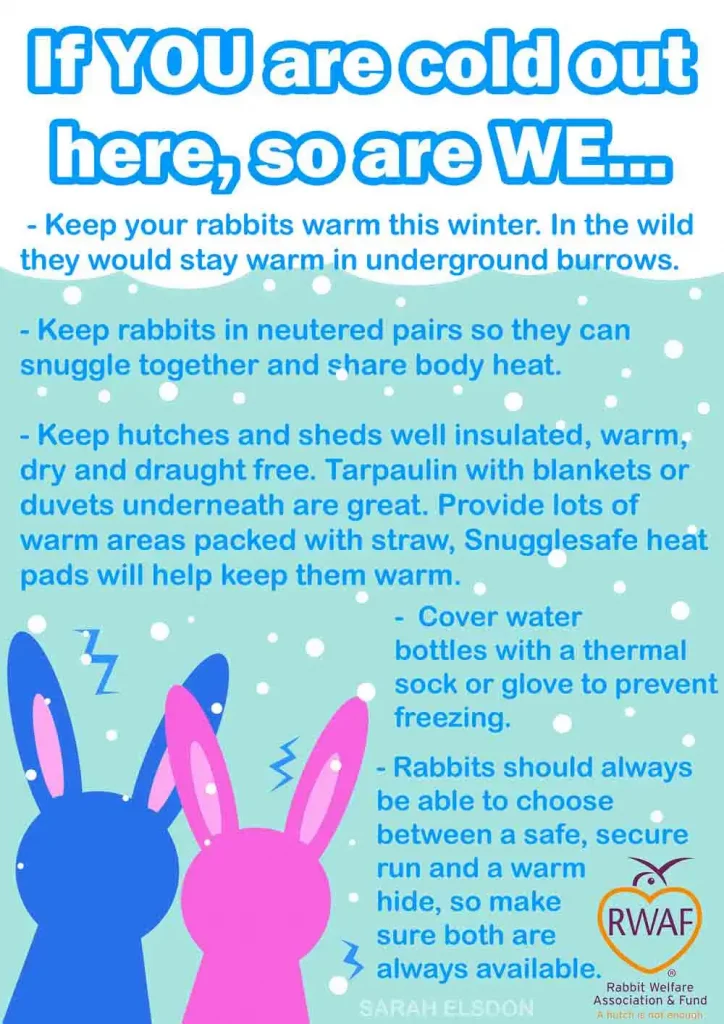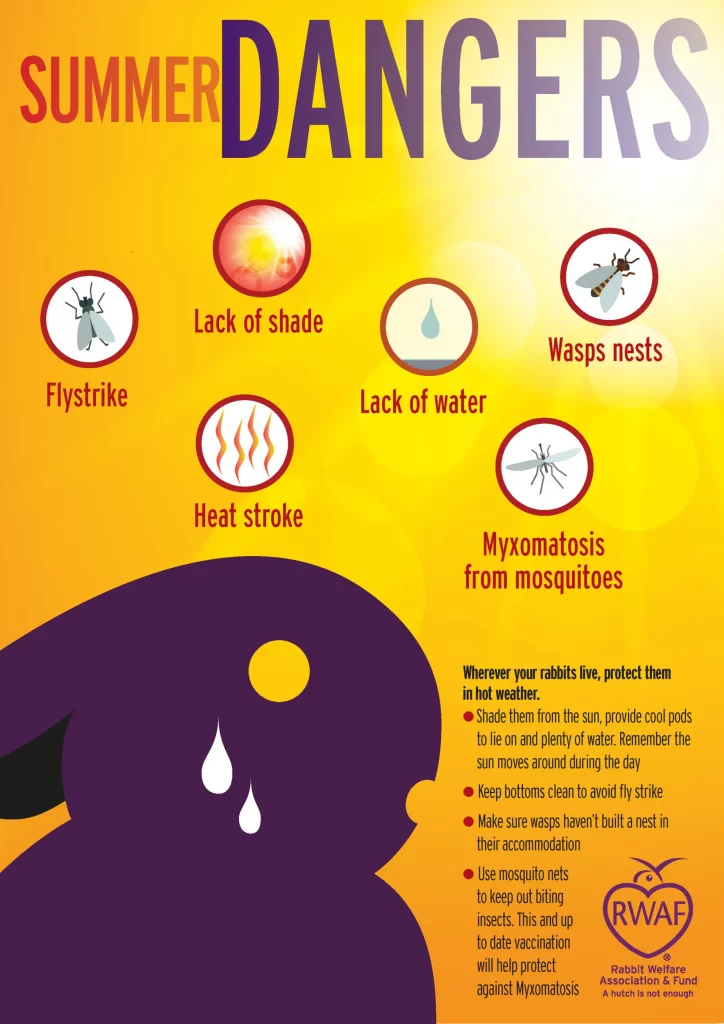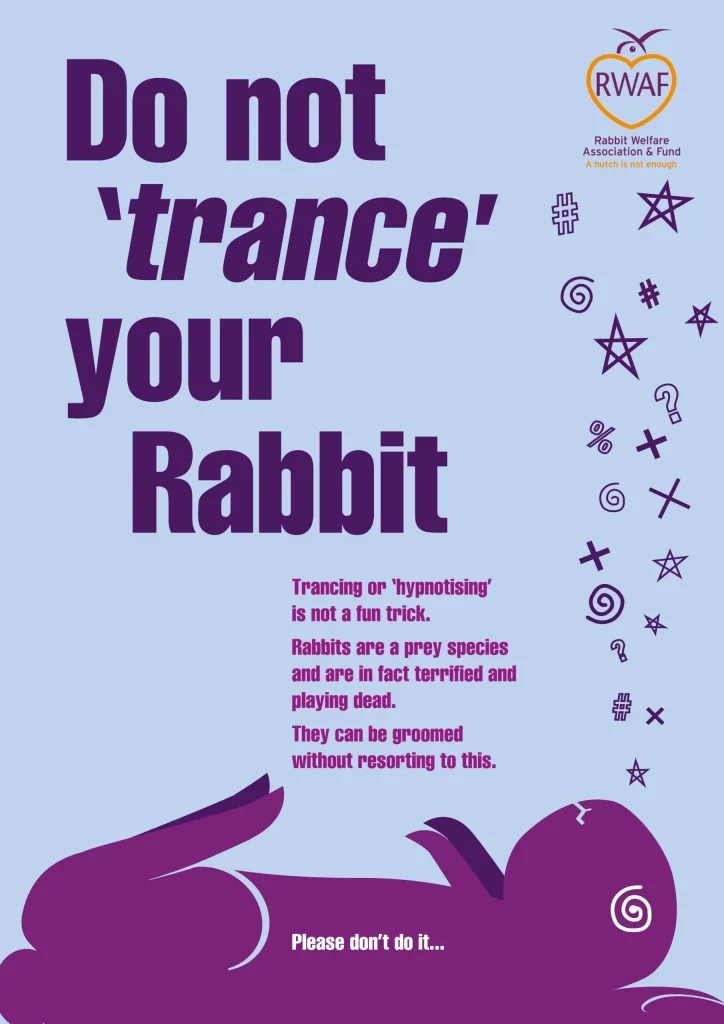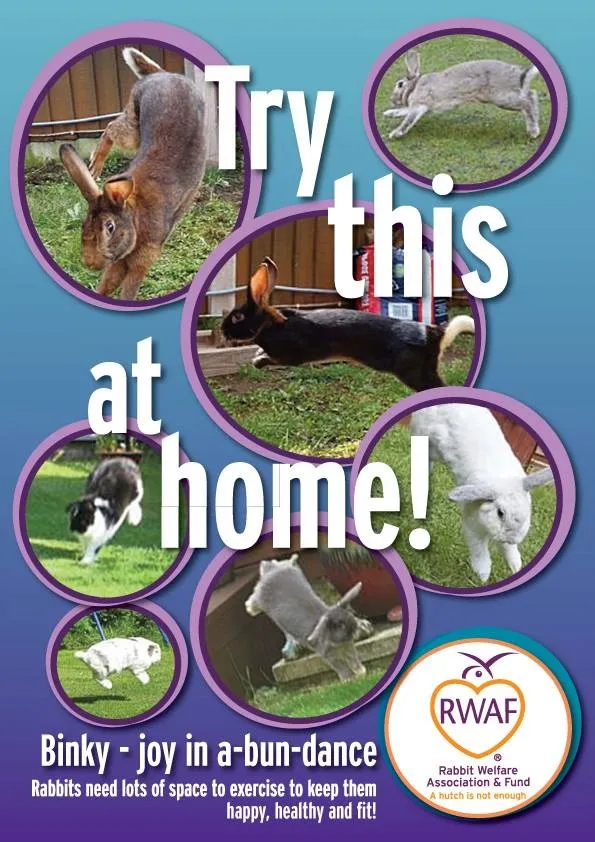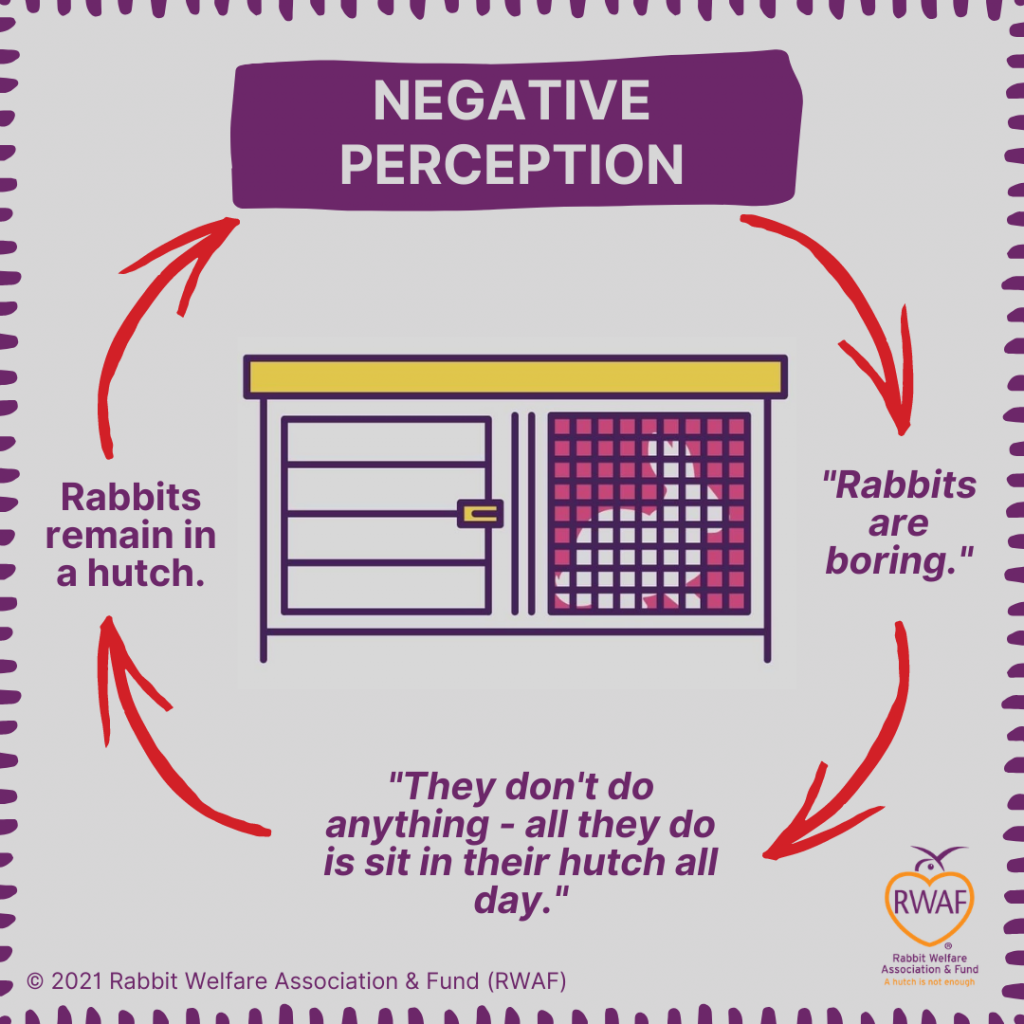Here at Angel Rabbit Rescue, we want the best 5* homes for all of our animals.
To achieve this, there’s a few things you will need to consider and things we will need to check prior to letting you adopt from us.
There is a minimum donation of £80 for adopting from us. This goes towards the vet bill for neutering & vaccinating (which costs us nearly more than double the adoption fee per rabbit) and any medical treatments they had.
Please visit the Rabbit Welfare Association & Fund (RWAF) website to find out more on rabbit needs and care.
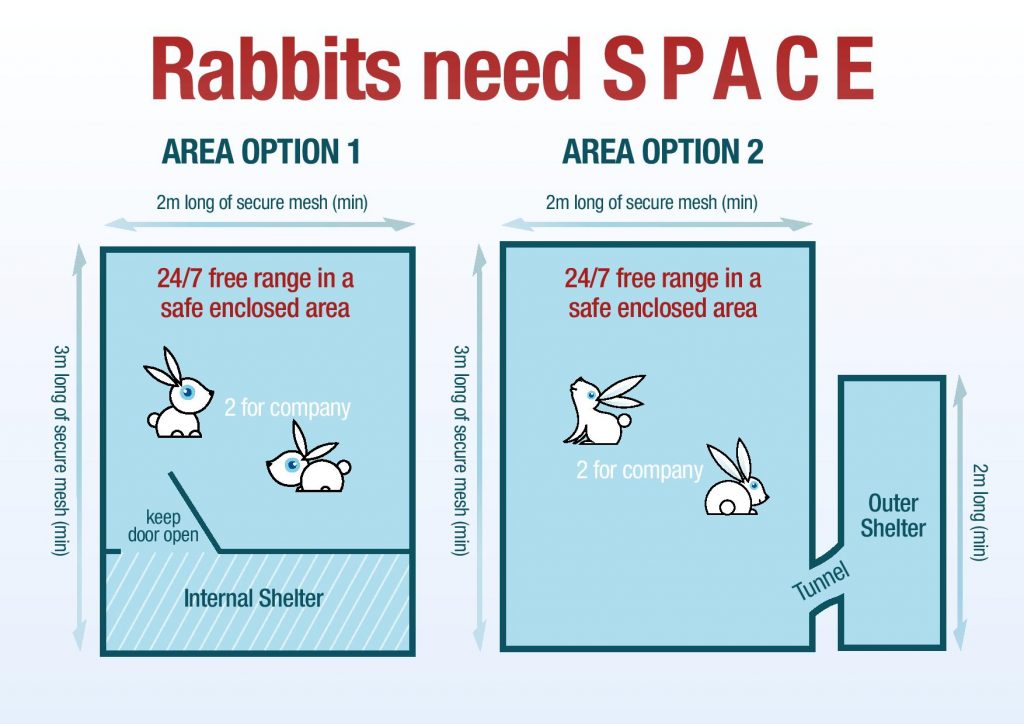
Living arrangements;
A hutch is NOT enough!
Rabbits require a minimum of 3mx2m space (and 1m high) to ensure healthy bone growth, minimise spinal injuries/deformaties and ensure that they’re able to run around to stay active. The image to the left shows 2 examples of how this can be achieved. Obviously, the more space you can give them – the better!
Outdoor rabbits need to have a predator proof enclosure and plenty of hiding spaces. You will also need to check what plants are in your garden, as a lot are poisionous to rabbits.
Indoor rabbits will need hides and litter trays, and you will need to ‘rabbit proof’ your electricals, furniture and any valubles you don’t want ‘customising’!
Although rabbits make great family pets, they do NOT make good pets for children. As they are prey animals, the majority of rabbits do not like to be picked up and cuddled. There are the exceptions, but on the whole they like to be interacted with whilst they’re on the floor.
We will not rehome our rabbits if the minimum space can’t be met.

Companionship/bonding;
Rabbits are social animals and ideally should not be on their own. In the wild rabbits would be in groups called a ‘fluffle’. It is extremely rare for a rabbit to want to be on it’s own.
Just as we get lonely when we’re on our own for long periods of time, how do you think rabbits feel for years on their own?
Rabbits should be in a pair minimum. This can be achieved by neutering and bonding them. Bonding can be a long process, as not all rabbits get along. Sometimes you have to try with several rabbits before finding the right partner.
A rabbits hormones will kick in around 9-12 weeks old. This can cause unwanted litters (which at such a young age, can be fatal to a doe) and fighting. All rabbits should be separated until they are neutered, then you can attempt bonding after 8 weeks. Baby bonds are not true bonds.
We offer a bonding service if you’re not confident and have a single rabbit, or would like to have a fluffle in your life. We also usually have bonded pairs and sometimes trio’s ready to join your loving home.
Unless their is a special reason as to why a rabbit has to be on their own, we will not rehome a single rabbit.
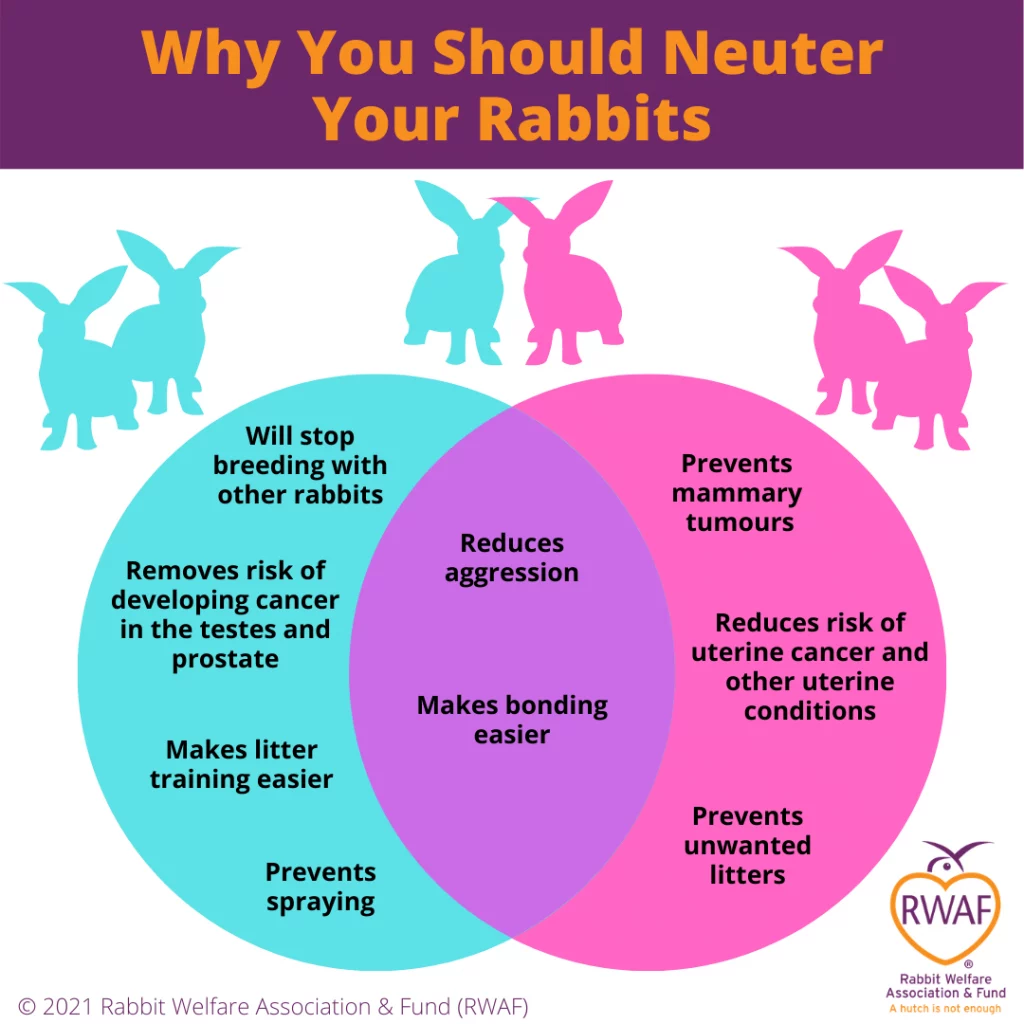
Neutering;
All rabbits should be neutered. This reduces the risks of cancers in both genders, prevents territorial marking and can help reduce aggression, as well as preventing unwanted litters. We take in so many kits every year due to missexed rabbits, rabbits that have gotten out of their enclosures and rabbits that have bred between cage bars (yes, that happens!).
This causes a lot of issues with people who have geniune reasons for needing to rehome their rabbits (from moving home, allergies and
medical issues) as most of our space is taken up by unwanted babies.
Male rabbits can cause serious injuries to each other and fight to the death if left together and unneutered.
Should you adopt from us, our rabbits will be neutered to prevent any more accidental litters.
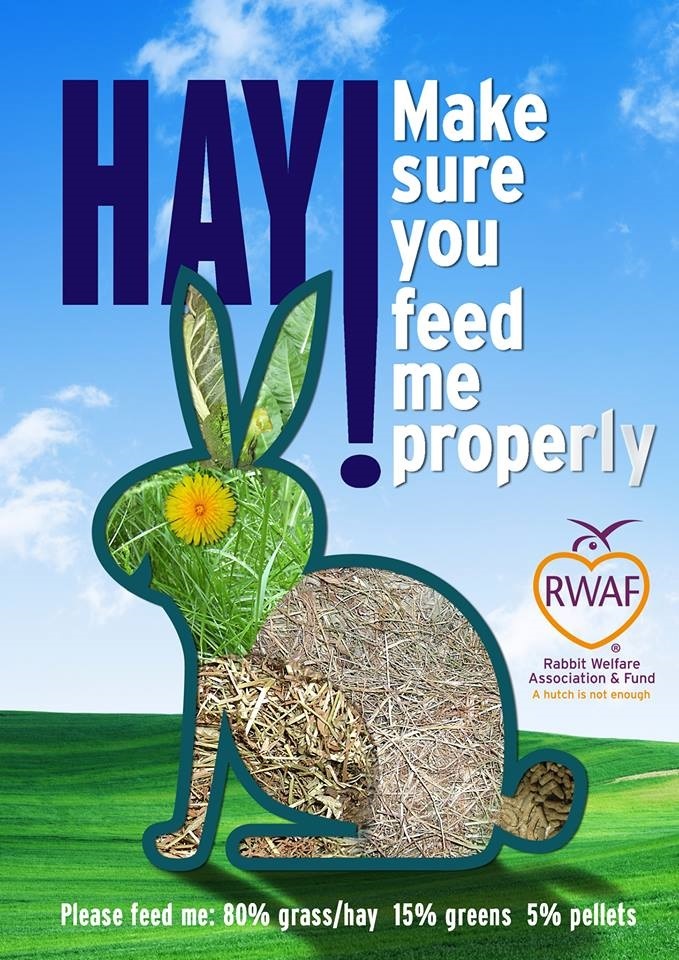
Diet;
A rabbits digestive system is a delicate thing. They must have access to fresh hay/grass and fresh water 24/7. Rabbits enjoy forage, greens and pellets in their diet. Rabbits should NOT have muesli mix, as most of the ingredients are unsuitable for them and it encourages picky eating.
If a rabbit is allowed to go long periods of time without food to keep their digestive system moving, they may end up in gut stasis. This can be fatal if left untreated.
Most rabbits will not drink from a bottle as they can’t get the water out fast enough or properly. Water bottles that are not cleaned regularly will grow bacteria and make your rabbits ill. A rabbit/cat/dog bowl is best.
Rabbits teeth do not stop growing. They need hay/grass and enrichment to keep them filed down. If a rabbits teeth are allowed to over grow, not only will they be unable to eat, they will be in pain from ulcers, cuts, infections and abcesses.
Some flat faced breeds are susceptible to maloclussion, where the jaw is misaligned and teeth don’t file down properly. In this case their teeth will need regular trimming/burring or the offending teeth removed.
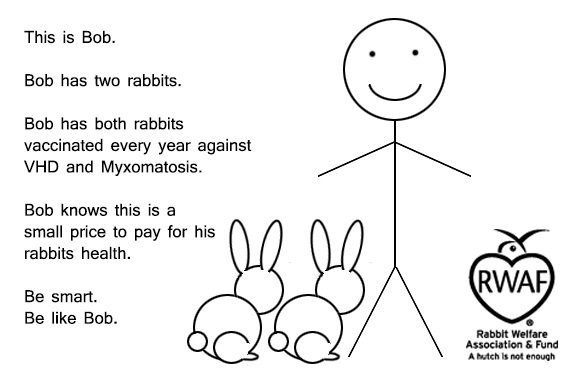
Vaccinations;
Rabbits should have yearly vaccinations to reduce the risk of contracting VHD/VHD2 and Myxomatosis. Unfortunately these can be silent killers and you wont know that they have it until it’s too late.
Flystrike prevention should be applied twice a year. Some vet practices have care plans where a flystrike preventative will be included in the monthly price.
All of our rabbits will be vaccinated if you adopt from us and we would hope that you carry it on.

Exotic vets/Insurance;
We highly recommend finding a rabbit savvy/exotic vet in your area (we use Piddle Valley Vets and also recommend Jordan at Vets 4 Pets Dorchester). Rabbits are considered exotic and most normal vet practises do not have a specialised vet on site, so check your local vets and see if they’re specially trained.
We also recommend insuring your rabbits, as they can go from ‘normal/fine’ to being admitted to the vets needing hundreds/thousands of pounds spent on medication, x-rays, scans, operations and more within hours. Rabbits can not vomit so it’s not always clear when they need medical attention.
Because rabbits are prey animals, they usually hide their pain and illnesses, so by the time you notice something is wrong, time is of the essence!
Some illness’s to be aware of are flystrike, E. Cuniculi, gut stasis, bloat, megacolon, maloclussion and Pasteurellosis.
However, despite all of this, rabbits are intelligent, beautiful and loving animals, each with a different personality to keep you entertained.
If this is hasn’t put you off adopting rabbits, then we would love to hear from you! You can see which rabbits we have for adoption here, and use the contact form to get in touch!
